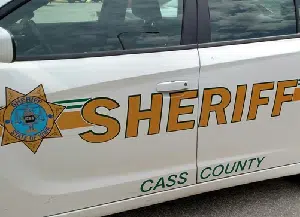(Ames) In response to the COVID-19 outbreak and Iowa Gov. Kim Reynolds’ issuance of a State of Public Health Disaster Emergency, the Iowa Department of Transportation seeks to combat the spread of the virus by taking the following immediate actions.
Driver’s license holders
If you have a driver’s license that has an expiration date of Jan. 16, 2020 or later you do not have to renew your license at this time. It will remain valid for driving purposes until the declared disaster has ended.
Vehicle titles, registration and license plates
If your vehicle registration expired Jan. 17, 2020 or later will be considered valid until the declared disaster has ended.
If you are purchasing or transferring a vehicle you will not be required to obtain a title and registration within 30 days. This will remain in effect until the declared disaster is over.
If you purchase a vehicle from a dealer you will not be required to obtain license plates within 45 days. This will remain in effect until the declared disaster is over.
Overweight Loads for Motor Carriers
On non‐interstate roads only, trucks hauling food, medical supplies, cleaning products, or other household goods may exceed the weights listed in Iowa Code 321.463 by 12.5 percent without a permit, so long as they don’t exceed 20,000 pounds on an individual axle, and their total weight does not exceed 90,000 pounds. Trucks are still required to obey posted bridge restrictions.
Driver’s service centers
-If you decide you must come into an Iowa DOT-operated service center please be aware:
-Driver’s license and ID business is being conducted by appointment. This move is being made to limit the number of people waiting in a location at a time. Customers should make appointments online or by calling 515-244-8725.
-All non-commercial drive tests will be discontinued and rescheduled to a future date.
-All customers entering a DOT service center will be asked a series of questions to evaluate their risk of exposure to COVID-19 and exposure to others being served. If it is determined that there may be a heightened risk for the customer to be served, they will be asked to delay services to a later date.
-Staff will be monitoring the number of customers waiting for services inside the facility to encourage social distancing guidance provided by the CDC. Customers may be asked to wait in their vehicles or come back at another time if service areas become crowded.
-Staff are regularly cleaning high-touch areas with disinfectants to reduce the chance of contamination.












